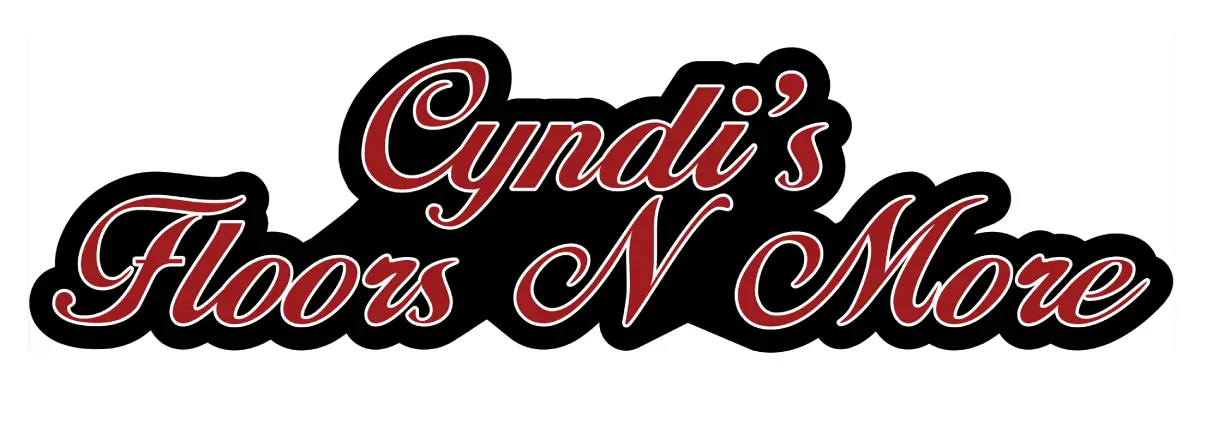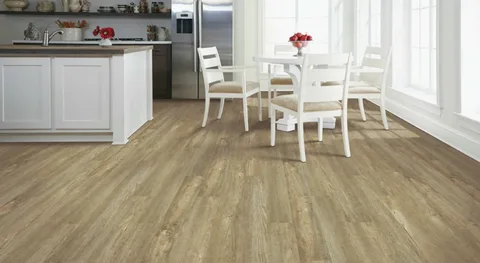Choosing the right flooring for your home can feel overwhelming, especially when two popular choices—Luxury Vinyl Plank (LVP) and Laminate flooring—look similar but perform differently. Both are budget-friendly, stylish, and designed to mimic real wood. But when it comes to long-term use, which one truly fits your needs?
In this guide, we break down the differences between luxury vinyl plank vs. laminate so you can make a confident, informed decision that works for your home, lifestyle, and budget.
What’s the Difference Between Luxury Vinyl Plank and Laminate?
At first glance, LVP and laminate look alike. Both come in planks, have realistic wood-look designs, and are much more affordable than real hardwood.
But the materials used to make them are different.
- Luxury Vinyl Plank is made from 100% synthetic material (mostly PVC) with a waterproof core and a durable wear layer.
- Laminate flooring is made from high-density fiberboard (HDF) topped with a printed image and a protective layer.
These material differences impact how they handle moisture, wear, and overall durability
LVP vs Laminate: Side-by-Side Comparison
Let’s compare the two across key features homeowners care about:
| Feature | Luxury Vinyl Plank (LVP) | Laminate Flooring |
|---|---|---|
| Water Resistance | 100% waterproof | Water-resistant (not waterproof) |
| Durability | Excellent – resists scratches, dents, and spills | Good – but can swell with moisture |
| Comfort Underfoot | Softer, especially with padded backing | Slightly harder surface |
| Realistic Look | Very realistic wood textures | Also realistic, slightly less so than LVP |
| Installation | Easy DIY (click-lock or glue-down) | Also easy DIY (click-lock) |
| Best Areas to Use | Bathrooms, kitchens, basements, whole home | Bedrooms, living rooms, low-moisture areas |
| Cost | Slightly higher but worth it | Budget-friendly option |
| Noise Level | Quieter (especially with padding) | Louder, may need underlayment |
| Maintenance | Simple – mop and sweep | Simple – avoid wet mopping |
💧 Water Resistance: LVP Wins
If you’re choosing flooring for high-moisture areas like kitchens, bathrooms, or laundry rooms, luxury vinyl plank flooring is the clear winner. It’s completely waterproof and won’t swell or warp, even if exposed to standing water.
Laminate, while water-resistant, isn’t fully waterproof. If water seeps through the seams or sits for too long, it can cause damage.
Durability and Daily Wear
Both options are considered durable flooring, but LVP edges ahead thanks to its tough vinyl core and scratch-resistant surface. It can handle heavy traffic, pets, kids, and moving furniture better over time.
Laminate holds up well in everyday situations, but it’s more likely to chip or dent under pressure or moisture.
Comfort and Feel
Comfort matters—especially if you stand or walk barefoot often. LVP tends to feel softer and warmer underfoot, especially when it comes with built-in padding. Laminate can feel a bit harder and may be louder when walked on.
If you want a quiet, cushioned feel, LVP is often the better pick.
Winner: LVP
Installation: Both Are DIY-Friendly
Both LVP and laminate flooring are easy to install yourself using a click-lock floating floor system. No nails or glue required for most types. They both work well over clean, level subfloors and can be done with basic tools.
Some LVP options also allow glue-down installation, which adds stability in large rooms or commercial spaces.
Winner: Tie
Maintenance and Cleaning
When it comes to cleaning, LVP is super low-maintenance. You can mop it without worrying about water damage, and it resists stains and odors.
Laminate should only be cleaned with a damp (not wet) mop. Too much moisture can cause swelling, so it needs a bit more caution.
Winner: LVP
Cost and Value for Money
Laminate is generally the cheaper option upfront, but LVP offers better value long-term due to its durability and water resistance.
If you’re on a tight budget and installing in dry areas like bedrooms or offices, laminate may still be a smart choice. But if you want flooring that lasts longer with less worry, LVP may be worth the extra investment.
Winner: Depends on budget & needs
Which Flooring Is Right for Your Home?
Here’s a quick breakdown to help you decide based on your home setup:
Choose Luxury Vinyl Plank Flooring if:
- You need waterproof flooring (kitchens, bathrooms, basements)
- You have pets or kids
- You want long-lasting, durable flooring
- You prefer a softer, quieter surface
- You’re okay spending slightly more for quality
Choose Laminate Flooring if:
- You’re renovating on a tight budget
- You’re installing in dry, low-traffic rooms
- You still want a wood-look without the high price
- You’re okay with avoiding wet cleaning methods
Final Thoughts: LVP or Laminate—What’s the Verdict?
Both luxury vinyl plank and laminate flooring have their strengths. But if you’re looking for the most versatile, durable, and water-resistant flooring for homes, LVP is usually the better pick—especially for busy or moisture-prone areas.
Laminate is still a great option for homeowners who want a wood look on a budget in dry spaces like bedrooms or upstairs rooms.
The best flooring option really depends on where you’re installing it, your lifestyle, and how long you want it to last.
FAQ: Luxury Vinyl Plank vs Laminate
1. Which lasts longer: LVP or laminate?
LVP typically lasts longer (15–25 years), especially in homes with moisture, pets, or high traffic.
2. Can I install laminate or LVP in a bathroom?
LVP is perfect for bathrooms. Laminate is not recommended due to moisture issues.
3. Is laminate more eco-friendly than LVP?
Laminate is made from recycled wood materials, so it can be a greener choice. However, many LVP brands are now offering eco-friendly options too.
4. Do both options need underlayment?
LVP often comes with built-in padding. Laminate usually requires a separate underlayment for cushioning and noise reduction.
5. Can I install either flooring myself?
Yes! Both are DIY-friendly with click-lock systems. Just make sure your subfloor is clean, dry, and level.

